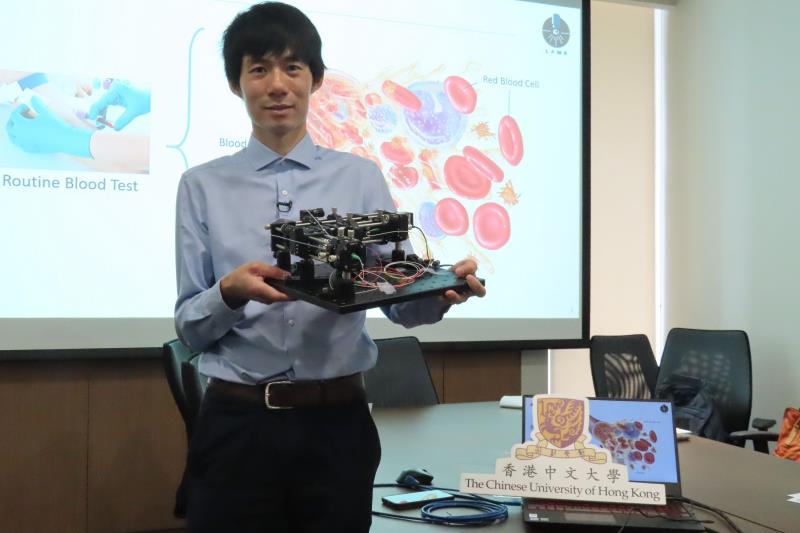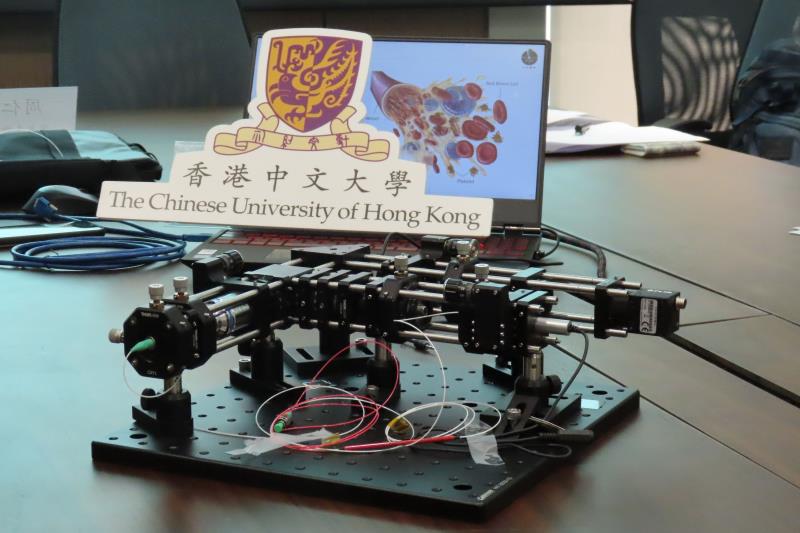
Experts at the Chinese University of Hong Kong (CUHK) have developed the world’s first artificial intelligence (AI)-enabled portable quantitative phase microscope (QPM) for blood testing.
The novel instrument, developed by the research team led by Professor Zhou Renjie, Department of Biomedical Engineering, CUHK, weighs less than 5 kg and is similar to a briefcase that can be carried around. The low-cost (USD >$30,000 vs >USD 80,000 for current method) technology has a label-free feature, which not only saves on the use of reagents, but also eliminates the process of staining and fluorescent labelling as well as manual classification and counting of cells. The analysis process is completed automatically with >10,000 cells classified and counted per second, generating results in a matter of minutes with over 90 percent accuracy.
“In the past, researchers have tried to combine AI with traditional blood testing methods in vain because it was difficult to distinguish cell images. Our high-precision QPM technology is effectively combined with the deep learning technology of AI. By learning morphological features from thousands of cells in two-dimensional quantitative phase images, our learning model can automatically distinguish monocytes, granulocytes, and T-cells and B-cells in lymphocytes from healthy volunteers’ blood samples,” said Zhou.
According to the researchers, the new QPM blood testing technology can be used in general clinics and underdeveloped areas to enable rapid identification of different types of human leukocytes at high efficiency with a low cost.
Traditional blood testing methods, including stained smears and fluorescence detection via flow cytometry, are time-consuming and labour-intensive, with high costs for instruments and reagents. Although existing QPM technology offers higher imaging sensitivity and speed, instruments are bulky (>100 kg) and cannot be carried at ease. All these methods are time consuming (100 samples/hour), with test results taking hours or even days to be generated. In addition, the morphology of cells may be affected through staining or labelling, rendering the cells unreusable in other tests. [Am J Clin Pathol 2013;139:641-650]
The CUHK researchers have completed a proof-of-concept study of the AI-enabled QPM technology and are planning to obtain clinical certification through partnerships with hospitals in 2020, with commercialization anticipated in 3–5 years. They also plan to develop other AI models of this technology to distinguishing red blood cells from other blood cell types, and to differentiate between bacteria and stem cells. It is hoped that cancer cell detection in peripheral blood can be done in the future.
